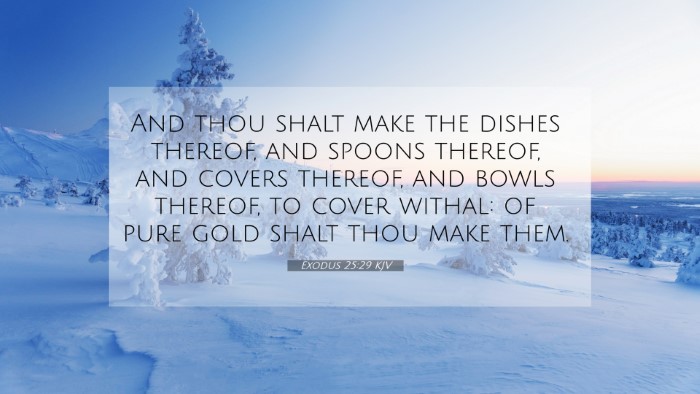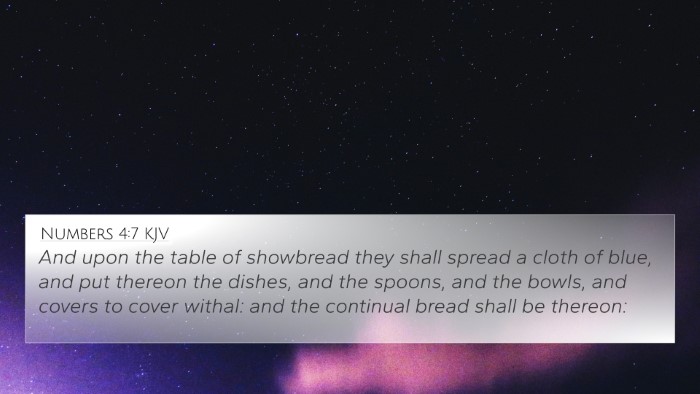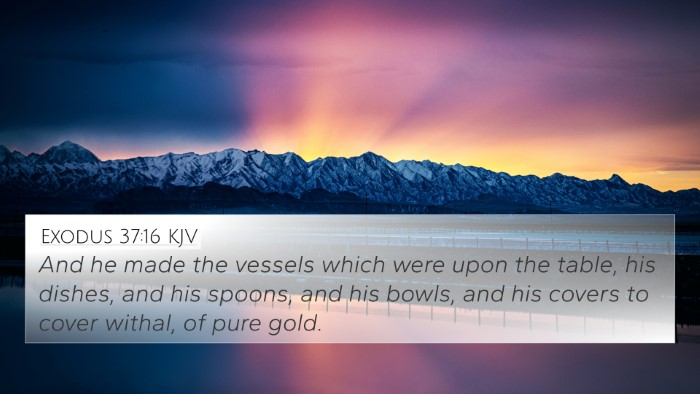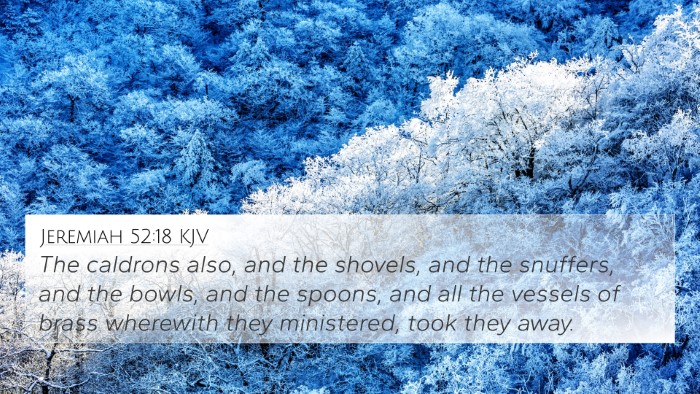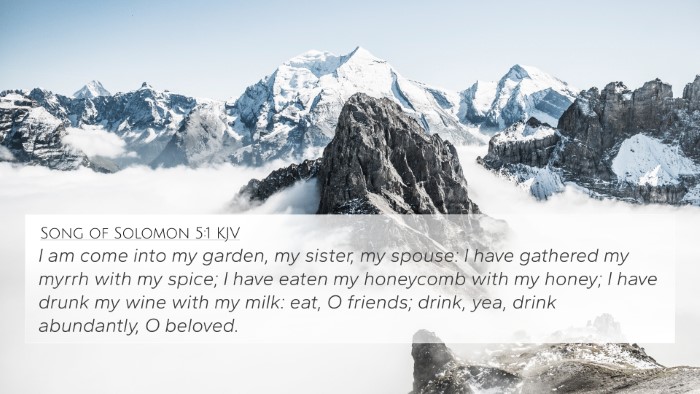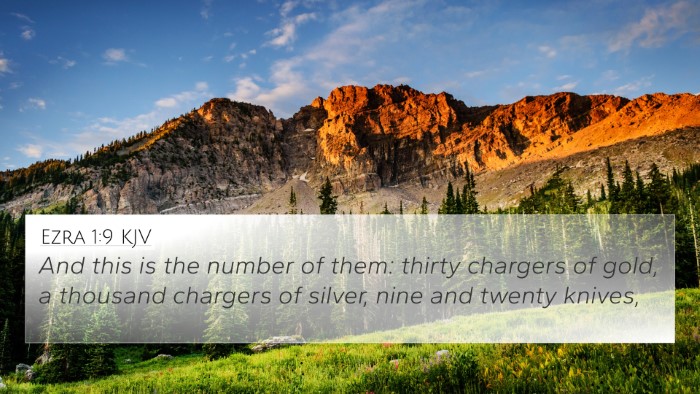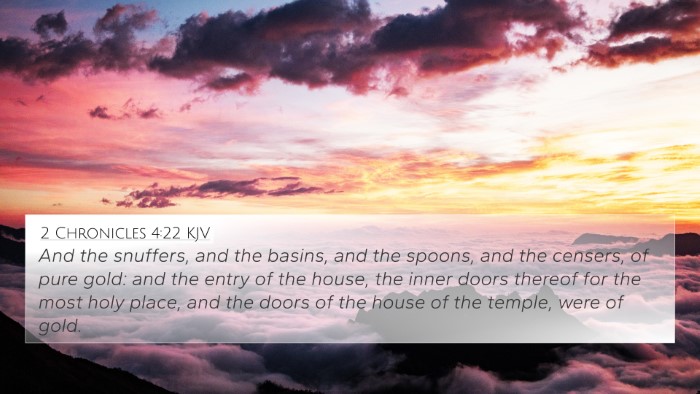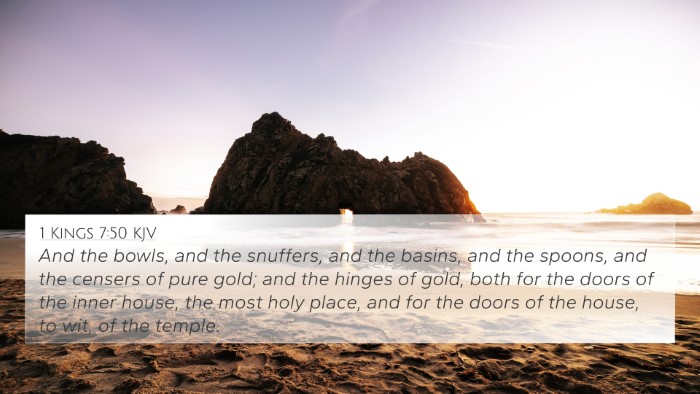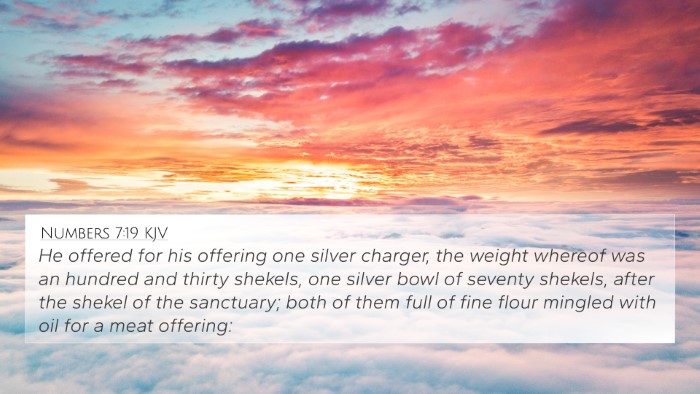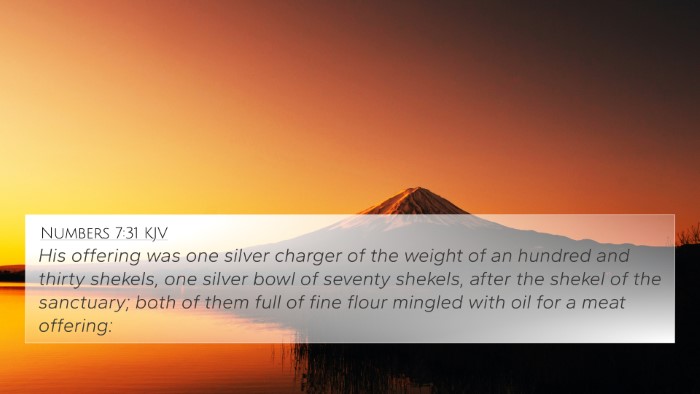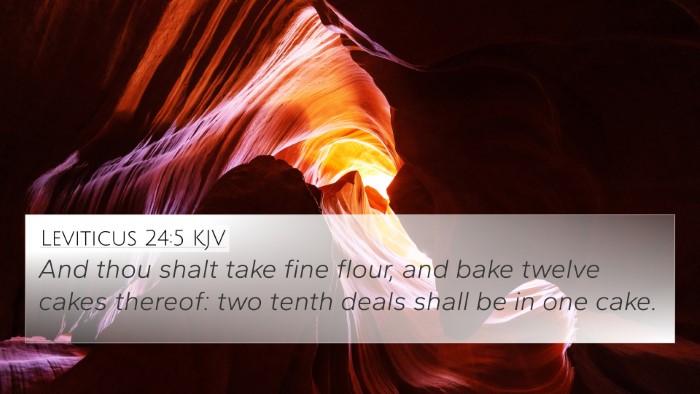Understanding Exodus 25:29 - A Comprehensive Analysis
Exodus 25:29 states: "And thou shalt make the dishes thereof, and spoons thereof, and covers thereof, and bowls thereof, to cover withal: of pure gold shalt thou make them."
This verse is part of the instructions God gave to Moses regarding the construction of the Tabernacle and its furnishings. It highlights the meticulous detail and quality of materials that God desired for the sacred items.
Key Themes in Exodus 25:29
- The importance of holiness and purity in worship.
- The use of precious materials to honor God.
- The symbolism behind the various elements used in worship.
Commentary Insights
Matthew Henry's Commentary
Matthew Henry emphasizes that the items described—dishes, spoons, covers, and bowls—are essential for the service of the tabernacle. He notes that the use of pure gold signifies the dignity of God's worship and the importance of offering our best to Him. Each item serves a specific purpose in the sacrificial system, illustrating God's desire for order and reverence in worship.
Albert Barnes' Notes
Albert Barnes provides a detailed exploration of the materials used in the tabernacle, highlighting that gold represents divine glory. He elaborates on the functionality of each utensil, indicating that they were not merely ornamental but served significant roles in rituals, reflecting the serious nature of the covenant relationship between God and Israel.
Adam Clarke's Commentary
Adam Clarke notes the instructions to create these items underline the need for functionality alongside beauty. He argues that the emphasis on pure gold symbolizes purity in worship practices. Clarke also makes connections between the items and their symbolic meanings within the broader context of Israel's worship practices.
Bible Verse Cross-References
Understanding Exodus 25:29 can be enriched by considering several cross-references:
- Exodus 25:10-22 - Discusses the Ark of the Covenant, emphasizes divine presence.
- Exodus 37:10-16 - Details the construction of the various utensils.
- 1 Chronicles 28:18 - Mentions gold implements for worship in the temple.
- Hebrews 9:4 - Refers to the contents of the tabernacle, including the golden utensils.
- Numbers 4:9 - Indicates the care needed for the sacred items.
- Exodus 30:1-3 - Discusses the altar of incense and its gold overlay.
- Zech 14:20 - Describes holy vessels in worship, linking back to the purity aspect.
Connections Between Bible Verses
Exodus 25:29 serves as a window into broader theological themes present throughout Scripture. It invites readers to explore:
- Linking Bible Scriptures: The connection between the Old Testament practices and New Testament implications of worship.
- Thematic Bible Verse Connections: How elements like gold represent purity, holiness, and dedication to God.
- Bible Verses That Relate to Each Other: Exploring the parallels between the use of liturgical items in the tabernacle and their New Testament significances.
- Cross-Referencing Biblical Texts: Utilizing tools like a Bible concordance or cross-reference Bible study guides to delve deeper.
Practical Applications
Understanding the significance of this verse can guide believers today in their worship and dedication to God:
- Encouraging a spirit of excellence in how we approach worship.
- Recognizing the importance of both form and function in our spiritual lives.
- Understanding the sacrificial system as a foreshadowing of Christ's ultimate sacrifice.
Further Study Suggestions
To deepen your understanding of Exodus 25:29:
- Utilize a Bible cross-reference system to find links between this verse and other sections of Scripture.
- Conduct a comparative study of Pauline epistles to uncover parallels in themes of holiness and service.
- Explore Bible reference resources that focus on worship artifacts and their significance.
Conclusion
Exodus 25:29 serves as a profound reminder of the sacred nature of our worship and the importance we place on honoring God with our resources and actions. Through cross-referencing and connecting this verse with others, we glean deeper insights into the nature of worship and God's expectations of His people.


